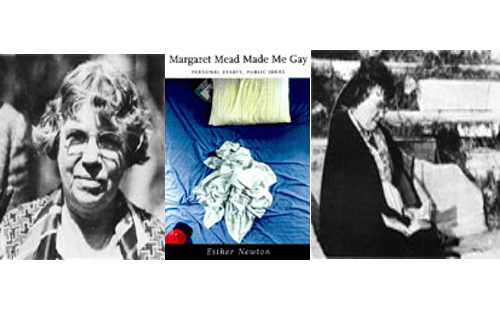Thoughts on Feminism—Deeply Queer
“Feminism has always been a radical framework for social justice in my life. I have always thought about the destruction of patriarchal culture on people, but feminism helped me learn and develop tools to defeat it. I started thinking about this after thinking about current frustrations with some feminist scholars and activists—specifically those who neglect to imagine ‘difference’ and its place within feminism. I am always excited to talk about feminism, because it represents the framework for social justice that has transformed my thinking the most, pushing me further in and through the margins. As I continue struggling as a low-income worker, complicated by gender oppression (conformity), homophobia, and anti-Black racism, feminism helps me cope with these issues by having the power to openly challenge them.
From my experience, feminism is one of the only forms of criticism that also exists to challenge itself and other social justice frameworks. I learned to hold myself and others accountable for maintaining forms of oppression from male feminist activists. Later, through women’s studies, I also understood how feminists emphasized the importance of doing internal work for radical change against sexism and dominant forms of patriarchy. This has been my experience with feminism in SONG as well. What I think is most powerful is that their feminism goes without saying. SONG’s major goal is challenging oppression, which comes in multiple forms affecting people, multiple identities and experiences. Feminism is one of the powerful forces behind this.” —Lamont
We discussed feminism as something we all assume and experience as a basis in SONG’s work. In this sense, we shared an appreciation of feminisms that don’t come narrow, i.e. they might not be identified as such in the sense of a single-issue agenda or strategy. Instead, in SONG feminism appears again not as a luxury, but as everyday work. To Lamont feminism is already there in SONG; in a reference to womanism 1, he described SONG as following the commitment that as you see oppression you do something about it. “Challenging oppression wherever and whenever you see it” allows feminism to be a part of SONG’s social justice framework for Lamont. Again, SONG emphasizes, “holding the multiplicities,” which suggests that feminism is not/cannot be the only lens for social justice.
Noemi brought in another “early,” yet current discussion around feminism and queerness in saying that Queer Theory has not always embraced spirituality. She reminded us of the discussions around “essentialist” or “cultural” feminism versus the deconstruction of gender and sex. There have always been several feminisms, clashing over ideas such as that women are “more peaceful by nature” as they are closer to it through their ability to give birth, or over judgmental dismissals of TransMen as supporters of patriarchy 2. As Noemi cited Donna Haraway’s ironic comment, “I would rather be a cyborg than a goddess” 3, we laughed hard in recognition of feminist tensions, and SONG’s commitment to gender diversity. Noemi also expressed how SONG’s feminism to her is a feminism that is deeply queer. Deeply queer in that it speaks from the perspective of sex workers and not about them, deeply queer in that it speaks from the perspective of trans folks about their lack of health care and not about them; deeply queer in that it creates space for different allegiances to spirituality and to gender varieties of all kinds, from Two Spirited folks to gender queer identified Trans lesbians who were assigned the female sex at birth.
- Alice Walker, In Search of Our Mother’s Gardens: Womanist Prose (New York: Harcourt Books, 1983 [1967]).[↑]
- See Gayle Rubin’s analysis of transphobic discourses: Gayle Rubin, “Of Catamites and Kings: Reflections on Butch, Gender, and Boundaries,” In Transgender Studies Reader, Susan Stryker and Stepen White, Eds. (New York and London: Routledge, 2006): 471-81. See also Janice Raymond writing against transwomen: Janice G. Raymond, The Transsexual Empire: The Making of the She-Male (New York: Teachers College Press, 1979). As another critique of transphobic discourses, see: Gayle Salamon, Assuming a Body: Transgender and Rhetorics of Materiality (New York: Columbia University Press, 2010). See further: Jean Bobby Noble, Sons of the Movement: FtMs Risking Incoherence on a Post-Queer Cultural Landscape (Toronto: Women’s Press, 2006). And also: Krista Scott-Dixon, Ed., Trans/Forming Feminisms: Transfeminist Voices Speak Out (Toronto: Sumach Press, 2006).[↑]
- Donna Haraway, “A Cyborg Manifesto: Science, Technology, and Socialist-Feminism in the Late Twentieth Century,” In Simians, Cyborgs and Women: The Reinvention of Nature (New York: Routledge, 1991): 181.[↑]



